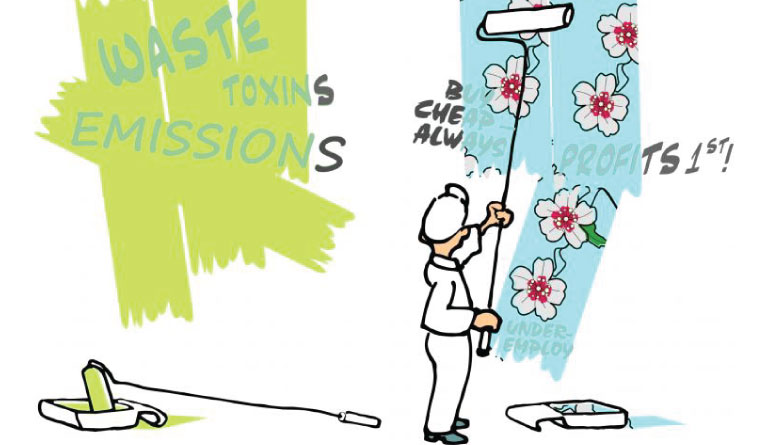
We have every reason to be excited as the emerging social enterprise sector attains higher and higher levels of recognition and accomplishment. The collaborative energy increases. The business opportunities keep growing. We’re witnessing new levels of local and collective business success and social impacts.
A piece of history casts a shadow across these achievements, however. It’s called ‘greenwashing.’ Along with the successes of the environmental movement greenwashing emerged as a way to grab the rewards of environmentalism without really adding to its value.
The term “greenwashing” was added to the Oxford English dictionary in 1999, where it is defined as “disinformation disseminated by an organization so as to present an environmentally responsible public image.’
Maybe I’m imagining things, but experience tells me this is something we in the social enterprise sector need to look out for.
Could we maybe read this statement in a few years?
‘The term “socialwashing” was added to the Oxford English dictionary in 2017, where it is defined as “disinformation disseminated by an organization so as to present a socially responsible public image.” A combination of “social” and “whitewashing,” “socialwashing” is generally used when an organization spends more time and money on advertising how “socially friendly” it is, than on policies and practices which are socially friendly. In reality, the company may be doing very little that is socially friendly.’
What are the chances of somebody making exaggerated claims of social impact in order to gain a business advantage, like a purchasing tender? Or of somebody falsely claiming business accomplishments in order to tap social financing or investment money?
If you ask me, the chances are pretty good.
To avoid this dilemma and the damage it could cause to the social enterprise brand, I think we have to do two things:
Be vigilant for any evidence or hint of “socialwashing.” We have to challenge initiatives that seem to present or offer a fabricated social or financial value.
Collaborate across the private, public and community sectors to create effective social enterprise relationships and opportunities for financing and purchasing.
In my view, the second task is even more important than the first. The more we focus on building a healthy social enterprise sector, the less time we’ll have to spend opposing socialwashing. Hopefully, we won’t have to spend any time on it at all.
This was originally posted to Enterprising Non-profits Canada, and appears here with permission.





